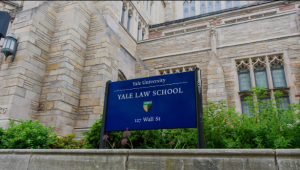Law Colleges and Universities Nurturing Legal Minds Worldwide
- Introduction to Law Colleges and Universities
- Top Law Colleges and Universities Worldwide
- Harvard Law School
- Yale Law School
- Stanford Law School
- Oxford University Faculty of Law
- Cambridge Faculty of Law
- Unique Features of Leading Law Schools
- Faculty Expertise
- Research Opportunities
- Networking and Alumni Connections

- Application Process and Requirements
- GPA and LSAT Scores
- Personal Statement and Letters of Recommendation
- Extracurricular Activities and Work Experience
- Scholarships and Financial Aid
- Merit-Based Scholarships
- Need-Based Aid
- Career Opportunities for Law Graduates
- Law Firms
- Corporate Counsel
- Public Interest and Government Positions
- Diversity and Inclusion Efforts
- Challenges Faced by Law Students
- Work-Life Balance
- Mental Health Awareness
- Emerging Trends in Legal Education
- Technology Integration
- Interdisciplinary Studies
- Conclusion
Law Colleges and Universities: Nurturing Legal Minds Worldwide
Law colleges and universities serve as the breeding ground for the legal minds that shape the world. With a plethora of options available worldwide, aspiring lawyers often find themselves navigating through a maze of choices. From prestigious Ivy League institutions to esteemed universities across the globe, the pursuit of legal education offers a diverse landscape of opportunities. In this article, we delve into the realm of law colleges and universities, exploring the top institutions, application processes, career prospects, and emerging trends in legal education.
Top Law Colleges and Universities Worldwide
Harvard Law School
Harvard Law School stands tall as one of the most revered institutions in the field of law. Renowned for its rigorous curriculum and esteemed faculty, Harvard Law attracts top-tier students from across the globe. With a rich history dating back to 1817, the institution continues to uphold its legacy of academic excellence.
Yale Law School
Yale Law School boasts a long-standing reputation for fostering intellectual inquiry and legal scholarship. Situated in New Haven, Connecticut, Yale Law offers a vibrant academic community known for its interdisciplinary approach and commitment to social justice.
Stanford Law School
Nestled within the heart of Silicon Valley, Stanford Law School embodies innovation and forward-thinking in legal education. With a focus on hands-on learning and practical training, Stanford equips students with the skills needed to thrive in a rapidly evolving legal landscape.
Oxford University Faculty of Law
Oxford University’s Faculty of Law, located in the historic city of Oxford, England, provides a transformative educational experience rooted in tradition and intellectual rigor. From undergraduate programs to postgraduate research opportunities, Oxford offers a range of avenues for legal scholarship.
Cambridge Faculty of Law
Cambridge Faculty of Law, situated in the picturesque surroundings of Cambridge, England, epitomizes academic excellence and scholarly pursuit. With a diverse student body and distinguished faculty, Cambridge fosters a dynamic learning environment conducive to intellectual growth.
Unique Features of Leading Law Schools
Faculty Expertise
One of the defining characteristics of top law schools is the caliber of their faculty. From renowned scholars to seasoned practitioners, leading institutions attract faculty members who are experts in their respective fields. Students benefit from exposure to diverse perspectives and cutting-edge research.
Research Opportunities
Law colleges and universities offer ample opportunities for students to engage in scholarly research and academic inquiry. Whether through independent projects, clinical programs, or collaborative ventures, students have the chance to contribute to the advancement of legal knowledge.
Networking and Alumni Connections
The connections forged during law school can be invaluable in shaping one’s legal career. Leading institutions often boast extensive alumni networks spanning the globe. These connections provide students with access to mentorship, internship opportunities, and job placements.
Application Process and Requirements
GPA and LSAT Scores
When applying to law schools, GPA and LSAT scores play a significant role in the admissions process. While academic performance is important, admissions committees also consider factors such as work experience, extracurricular activities, and letters of recommendation.
Personal Statement and Letters of Recommendation
A compelling personal statement and strong letters of recommendation can make a significant difference in the application process. These documents offer applicants the opportunity to showcase their unique experiences, skills, and aspirations.
Extracurricular Activities and Work Experience
Beyond academic achievements, admissions committees value applicants who demonstrate leadership, initiative, and a commitment to service. Participation in extracurricular activities, volunteer work, internships, and employment can enhance an applicant’s profile.
Scholarships and Financial Aid
Merit-Based Scholarships
Many law schools offer merit-based scholarships to attract top talent. These scholarships are awarded based on academic achievement, leadership potential, and other criteria determined by the institution.
Need-Based Aid
In addition to merit-based scholarships, law schools may also provide need-based financial aid to students with demonstrated financial need. This aid can come in the form of grants, loans, or work-study opportunities.
Career Opportunities for Law Graduates
Law Firms
A significant number of law graduates pursue careers in private practice, working for law firms of varying sizes and specializations. Law firms offer diverse practice areas, allowing graduates to find a niche that aligns with their interests and career goals.
Corporate Counsel
Many corporations employ in-house legal counsel to handle a wide range of legal matters, from contracts and compliance to litigation and intellectual property. Working as corporate counsel offers law graduates the opportunity to immerse themselves in the business world while applying their legal expertise.
Public Interest and Government Positions
Some law graduates choose to pursue careers in public interest law or government service. Whether working for non-profit organizations, government agencies, or international institutions, these individuals are dedicated to promoting justice and serving the public good.
Diversity and Inclusion Efforts
Leading law schools are increasingly prioritizing diversity and inclusion initiatives to create more equitable learning environments. By fostering diversity of thought, background, and experience, institutions strive to prepare students for the complexities of a diverse and interconnected world.
Challenges Faced by Law Students
Work-Life Balance
Law school can be demanding, often requiring students to juggle academic responsibilities, extracurricular activities, and personal commitments. Maintaining a healthy work-life balance is essential for overall well-being and success.
Mental Health Awareness
The intense pressure and competitiveness of law school can take a toll on students’ mental health. It’s important for institutions to prioritize mental health awareness and support services to ensure that students have the resources they need to thrive.
Emerging Trends in Legal Education
Technology Integration
The integration of technology into legal education is revolutionizing the way law is taught and practiced. From online learning platforms to AI-powered legal research tools, technology is reshaping every aspect of the legal profession.
Interdisciplinary Studies
Law schools are increasingly embracing interdisciplinary approaches to legal education, recognizing the interconnectedness of law with other fields such as business, science, and public policy. Interdisciplinary studies offer students a more holistic understanding of complex legal issues.




